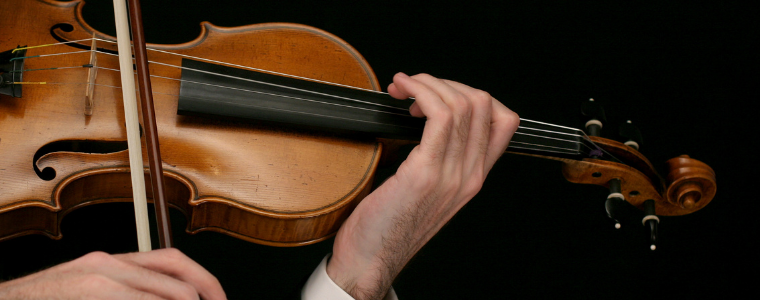Muscle Memory: What Is It and Why It's Important for String Musicians

The ultimate goal of a string musician is to perform an exquisite piece without mistakes. Muscle memory is required to let go of obsessing over “where the notes are,” freeing you to focus on telling a story with the music and your performance, so your audience can join in the experience.
So, what exactly is muscle memory? How do we create it? And why is it particularly important for string musicians?
The Importance of Muscle Memory for Strings Musicians
Let’s answer that last question first. While all master musicians rely on muscle memory, violinists, violists, cellists, and bass players have a unique challenge. Their instruments do not have frets. And, without frets, they must rely on muscle memory to land their fingers in the exact right spot, to play the exact right note. Even the most subtle shift up or down on the fingerboard creates dissonance making the note sharp or flat.
This is why serious string musicians, beginners to professionals, take doing scales, arpeggios, and practice sessions, so seriously. They aim to develop and hone muscle memory so their fingers and bowing arm will do exactly what is intended by a composer without having to overthink it. It's why your teachers insist you practice — a lot.
The brain-ear-muscle connection is an exquisitely choreographed symphony in its own right, and your dedication to developing that connection is essential to your future as a musician.
Muscle Memory is a Misnomer
Neuroscientists remind us that the term “muscle memory” is a bit of a misnomer. While the process does require muscle strength, training, and coordination to translate the brain’s neural patterns into action, it really has more to do with the brain than the muscles.
Scientists have discovered that the memory for developing a skill set (procedural memory) is a different memory system than the one required to memorize facts (declarative memory). The act of playing your instrument relies on procedural memory, while remembering which note is which on a staff relies more on declarative memory.
In fact, the system for learning and performing a new skill set by rote is incredibly complex, relying on multiple areas of the brain, including the motor cortex and the basal ganglia. Yet, the memory patterns required to create procedural memory (the type required for developing muscle memory) happen unconsciously.
Each time you practice your violin, anchoring fingers correctly, optimizing your bowing motion, nailing a difficult phrase in a concerto, your brain changes. It develops more white matter (the fibers that connect parts of the brain together) and grey matter (brain cells, or neurons). Plus you develop stronger connections between the brain through the spinal cord and directly to the specific muscles required to complete the task.
Strings Musicians Rely on Active and Listening Muscle Memory
The first time you played an A-major scale on your own, you delighted in the muscle memory you developed with accurate pitches. It was proof your brain used repeated practice times to hone white, gray, and other neural connections to create a dizzyingly complex series of physiological responses. These responses made your fingers, wrists, hands, and arms do exactly what they were supposed to.
But, let’s think about the phrase “accurate pitches.” String musicians have double-duty when it comes to developing muscle memory because, in addition to learning a new skill, they must also hone their ear-brain connection. Without frets to anchor a specific note, whether you can “hear it” or not, you must also develop a “muscle memory” around pitch/tone accuracy that corresponds to your finger positions.
Thus you rely on both active and listening-oriented muscle memory to do your job well. This is why ear training should always be a part of a beginning and even intermediate player’s practice time. The combination of active muscle/brain connection and a practiced ear is essential to being the best string musician you can be.
The next time you learn a new composition and flawlessly perform it to resounding applause, take a moment to thank your teachers who made you practice for hours on end. That practice produced the muscle memory you needed to deliver such a moving performance. Now, take your well-earned bow!

